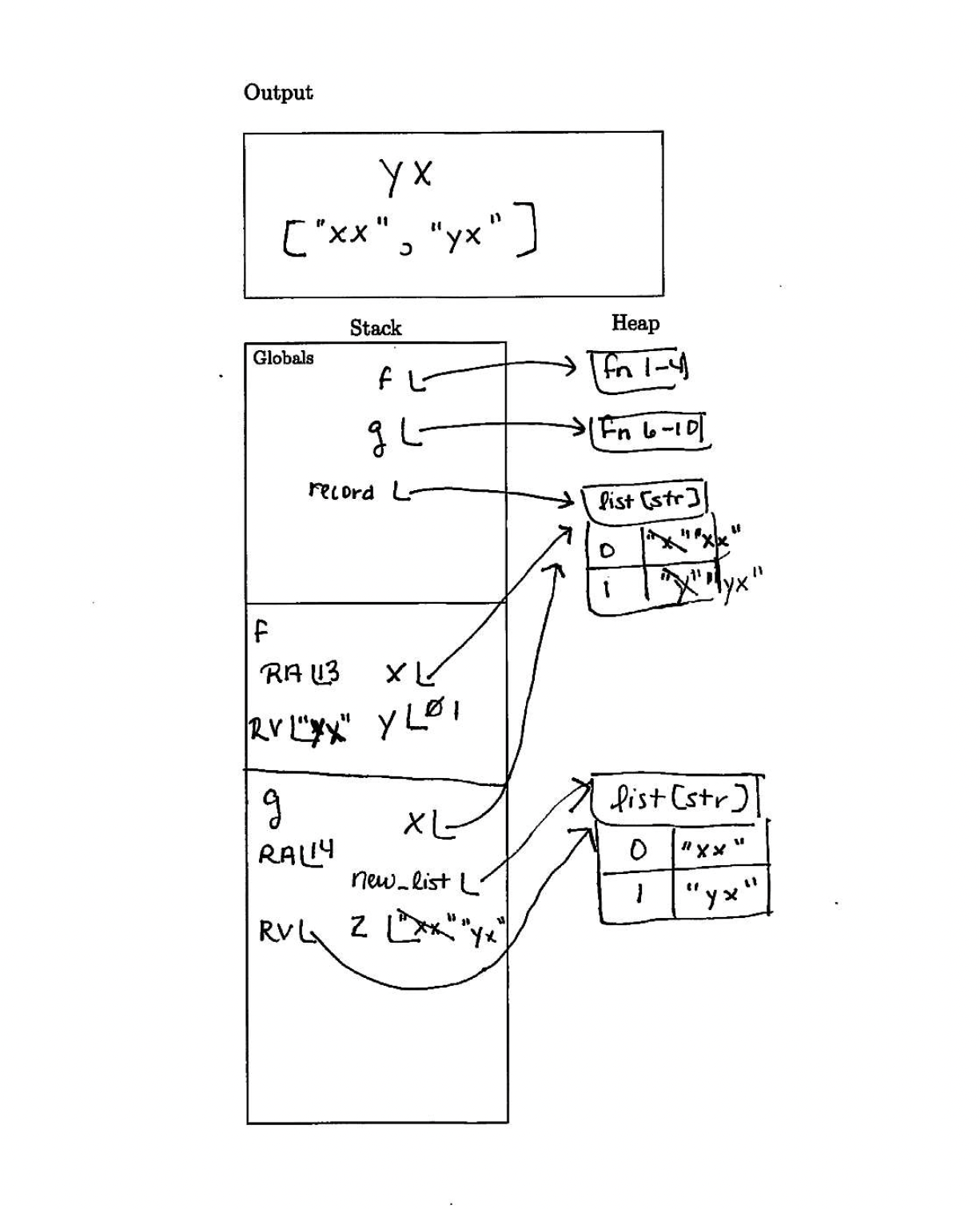Snippet
def f(x: list[str]) -> str:
for y in range(0,len(x)):
x[y] += "x"
return x[y]
def g(x: list[str]) -> list[str]:
new_list: list[str] = []
for z in x:
new_list.append(str(z))
return new_list
record: list[str] = ["x", "y"]
print(f(record))
print(g(record))
Solution
- Note that for this solution, we did not represent the
range() function on the heap! We instead just represented y as a variable on the stack that gets updated. If you chose to include a “range” object to the heap, we wouldn’t take points off, but we are really just looking for the value of y!

